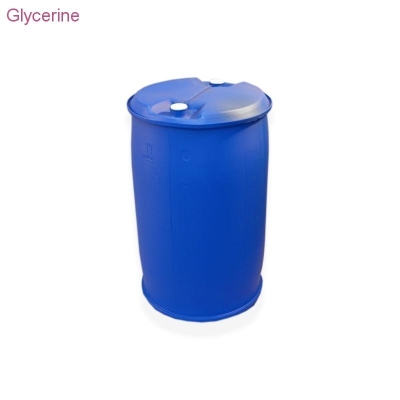-
Categories
-
Pharmaceutical Intermediates
-
Active Pharmaceutical Ingredients
-
Food Additives
- Industrial Coatings
- Agrochemicals
- Dyes and Pigments
- Surfactant
- Flavors and Fragrances
- Chemical Reagents
- Catalyst and Auxiliary
- Natural Products
- Inorganic Chemistry
-
Organic Chemistry
-
Biochemical Engineering
- Analytical Chemistry
- Cosmetic Ingredient
-
Pharmaceutical Intermediates
Promotion
ECHEMI Mall
Wholesale
Weekly Price
Exhibition
News
-
Trade Service
*For medical professionals only, montmorillonite
is not preferred
1.
Diarrhea manifestations
such as increased frequency of stool and changes in stool characteristics (loose watery stools).
2.
Vomiting, abdominal pain, bloating, decreased
appetite.
3.
Different degrees of dehydration
.
4.
Electrolyte and acid-base balance disorders
.
5.
Systemic symptoms
such as fever, irritability, malaise, lethargy, coma, and shock.
Clinically, according to the percentage of water loss to body weight, the degree of dehydration is divided into mild, moderate and severe dehydration, and the manifestations of various degrees of dehydration are shown in Table 1
.
Determining the degree of dehydration can help guide the clinician's next treatment plan
.
Table 1 Indexing of dehydration
For the treatment of children's diarrhea, many parents believe that diarrhea should be stopped in time, so most parents will choose to first give their children oral montmorillonite antidiarrheal treatment, in fact, this practice is wrong, antidiarrheal drugs due to inhibition of the child's gastrointestinal motility, will increase bacterial reproduction and toxin absorption, and is not conducive to the recovery
of the disease.
Although montmorillonite itself is an intestinal mucosal adsorbent, it can indeed play a role in adsorbing pathogens and toxins, but the current literature has a relatively low
level of evidence for recommending montmorillonite powder for the treatment of acute diarrhea in children.
Therefore, the treatment of infectious diarrhea in children should not be the drug of choice for montmorillonite powder, but should be after
fluid replacement, correction of electrolyte abnormalities, diet therapy, etc.
1.
Oral rehydration solution
.
For the treatment of mild and moderate dehydration, the dosage of ORS (ml) = body weight (kg) × (50~75), take it within 4 hours, evaluate the dehydration after 4 hours, and select the appropriate treatment plan
.
2.
Intestinal microecological preparations
Diet therapy
Zinc supplementation therapy
It is forbidden to use antidiarrheal agents
Avoid the abuse of antibiotics Antibiotic antibiotics are only suitable for children with bacterial intestinal infection, for diarrhea caused by new coronavirus infection, because it is a viral infection, the use of antibiotics will not bring benefits, on the contrary, the abuse of antibiotics may cause intestinal flora, causing antibiotic-related diarrhea, aggravating the symptoms
of diarrhea.
Severe abdominal distention
.
3.
Moderate or above dehydration manifestations
such as mental malaise, obvious depression of anterior fontanelle, obvious dry skin, few or no tears when crying, significantly reduced urine output or anuria.
4.
Diarrhea lasts for a long time
.
5.
Diarrhea with convulsive seizures
.
References:[1] Gastroenterology Group, Pediatrics Branch of Chinese Medical Association, Editorial Board of Chinese Journal of Pediatrics.
Clinical practice guidelines for acute infectious diarrhoeal disease in children in China[J].
Chinese Journal of Pediatrics, 2016, 54(7):483-488 Fan Juan, Li Maojun, Wu Qing, et al.
Diagnosis and management of infectious diarrhea in children——"2017 American Society of Infectious Diseases Clinical Practice Guidelines for the Diagnosis and Treatment of Infectious Diarrhea"[J].
Chinese Journal of Practical Pediatrics, 2019, 34(15):1121-1126 [3] Gui Yonghao, Xue Xindong.
Pediatrics (3rd edition)[M].
People's Medical Publishing House, 2016:178-187 The web version of the doctor's website is online, please scan the QR code below or click to read the original article,
you can browse more pediatric information 👇👇👇 without downloading
separately when adopting or using it as a basis for decision-making.
↓↓↓Click "Read Original" to learn more clinical skills
is not preferred
Written by | Dedicated pediatrician
In the past two days, a hot search news has rushed to the headlines: "The new new crown variant XBB.
1.
5 is coming, specifically attacking the body's gastrointestinal tract and can cause diarrhea in children"
.
As a result, many parents began to stock up on the drug "montmorillonite scatter", and for a time, the montmorillonite scatter in major pharmacies was snapped up
.
In fact, children infected with the new crown virus mainly cause upper respiratory tract symptoms, some may involve the gastrointestinal tract, causing vomiting, diarrhea and other digestive symptoms, but at present, for the treatment of children's diarrhea disease, there is no specific treatment drug clinically, mainly symptomatic supportive treatment, so parents do not have to stock up on drugs and prepare drugs
too much.
Here, the author shares with parents the relevant knowledge
of childhood diarrhea according to the current expert summary and relevant guidelines for childhood diarrhea.
1.
Will the new crown variant XBB cause diarrhea?
The new crown variant XBB belongs to the new variant branch of Omicron and has not yet become the dominant strain
in China at this stage.
Although some children infected with the new crown virus can cause vomiting, diarrhea and other digestive symptoms, there is no clear evidence that the new crown variant XBB is more likely to invade the digestive system, so parents do not need to panic and hoard medicine
.
2.
Children infected with the new coronavirus cause gastrointestinal symptoms
, what are the possible clinical manifestations?
1.
Diarrhea manifestations
such as increased frequency of stool and changes in stool characteristics (loose watery stools).
2.
Vomiting, abdominal pain, bloating, decreased
appetite.
3.
Different degrees of dehydration
.
4.
Electrolyte and acid-base balance disorders
.
5.
Systemic symptoms
such as fever, irritability, malaise, lethargy, coma, and shock.
3.
How to divide the dehydration of children's diarrhea disease clinically?
Clinically, according to the percentage of water loss to body weight, the degree of dehydration is divided into mild, moderate and severe dehydration, and the manifestations of various degrees of dehydration are shown in Table 1
.
Determining the degree of dehydration can help guide the clinician's next treatment plan
.
Table 1 Indexing of dehydration
4.
After diarrhea in children,
Is montmorillonite treatment preferred?
For the treatment of children's diarrhea, many parents believe that diarrhea should be stopped in time, so most parents will choose to first give their children oral montmorillonite antidiarrheal treatment, in fact, this practice is wrong, antidiarrheal drugs due to inhibition of the child's gastrointestinal motility, will increase bacterial reproduction and toxin absorption, and is not conducive to the recovery
of the disease.
Although montmorillonite itself is an intestinal mucosal adsorbent, it can indeed play a role in adsorbing pathogens and toxins, but the current literature has a relatively low
level of evidence for recommending montmorillonite powder for the treatment of acute diarrhea in children.
Therefore, the treatment of infectious diarrhea in children should not be the drug of choice for montmorillonite powder, but should be after
fluid replacement, correction of electrolyte abnormalities, diet therapy, etc.
V.
After children are infected with the new coronavirus,
How should diarrhea be treated?
1.
Oral rehydration solution
Dehydration may occur in children with diarrhoea, so fluid replacement is essential in children with diarrhoea, and oral rehydration salts III (ORS) are preferred in children without severe vomiting and mild to moderate dehydration
III) to rehydrate, but newborns should be used
with caution.
.
For the treatment of mild and moderate dehydration, the dosage of ORS (ml) = body weight (kg) × (50~75), take it within 4 hours, evaluate the dehydration after 4 hours, and select the appropriate treatment plan
.
2.
Intestinal microecological preparations
Intestinal microecological preparations such as probiotics help restore the ecological balance of intestinal flora, inhibit the colonization and invasion of pathogenic bacteria, thereby controlling diarrhea, and clinically can choose microecological preparations
containing bifidobacteria, Bacillus licheniformis, Saccharomyces boulardii and so on.
Diet therapy
Proper feeding is advocated, rather than fasting, and infants can continue to breastfeed
.
Because children with diarrhea often have secondary lactase deficiency, milk feeding can be temporarily stopped, and legumes, starchy foods can be changed to beans, starchy foods, or replaced with lactose formula feeding, but the time is generally not more than 2 weeks, and the fed food should follow the principle
of less to more, from dilute to thick and easy to digest.
In addition, children with vomiting can also be fed with small and frequent meals, that is, reduce the amount of food eaten per meal and increase the number of
meals.
Zinc supplementation therapy
Zinc supplementation in children with diarrhea can shorten the duration
of diarrhoea.
For children with acute diarrhea over 6 months, 20mg of elemental zinc is given daily, and children under 6 months are given 10mg of elemental zinc per day, and the course of treatment is 10~14 days
.
It is forbidden to use antidiarrheal agents
Antidiarrheal agents, such as loperbutol, are strictly contraindicated in children with diarrhea because they can inhibit gastrointestinal motility, increase bacterial reproduction, and toxin absorption
.
Avoid the abuse of antibiotics Antibiotic antibiotics are only suitable for children with bacterial intestinal infection, for diarrhea caused by new coronavirus infection, because it is a viral infection, the use of antibiotics will not bring benefits, on the contrary, the abuse of antibiotics may cause intestinal flora, causing antibiotic-related diarrhea, aggravating the symptoms
of diarrhea.
6.
What are the occurrences of diarrhoeal diseases in children,
Do parents need to take their child to the hospital immediately?
1.
Severe vomiting, diarrhea, obvious decrease in appetite, refusal to eat
.
Severe abdominal distention
.
3.
Moderate or above dehydration manifestations
such as mental malaise, obvious depression of anterior fontanelle, obvious dry skin, few or no tears when crying, significantly reduced urine output or anuria.
4.
Diarrhea lasts for a long time
.
5.
Diarrhea with convulsive seizures
.
References:[1] Gastroenterology Group, Pediatrics Branch of Chinese Medical Association, Editorial Board of Chinese Journal of Pediatrics.
Clinical practice guidelines for acute infectious diarrhoeal disease in children in China[J].
Chinese Journal of Pediatrics, 2016, 54(7):483-488 Fan Juan, Li Maojun, Wu Qing, et al.
Diagnosis and management of infectious diarrhea in children——"2017 American Society of Infectious Diseases Clinical Practice Guidelines for the Diagnosis and Treatment of Infectious Diarrhea"[J].
Chinese Journal of Practical Pediatrics, 2019, 34(15):1121-1126 [3] Gui Yonghao, Xue Xindong.
Pediatrics (3rd edition)[M].
People's Medical Publishing House, 2016:178-187 The web version of the doctor's website is online, please scan the QR code below or click to read the original article,
you can browse more pediatric information 👇👇👇 without downloading
Responsible editor: Xiang Yu
separately when adopting or using it as a basis for decision-making.
↓↓↓Click "Read Original" to learn more clinical skills







